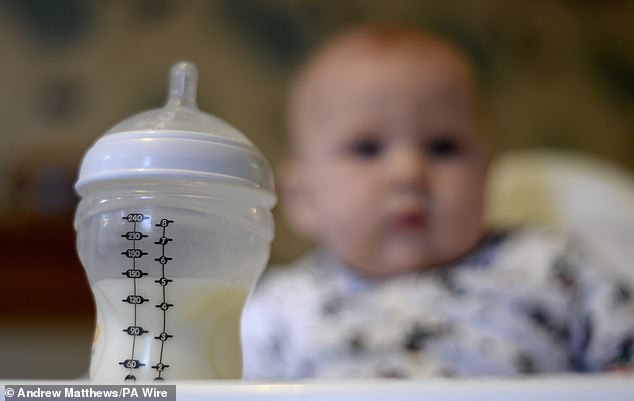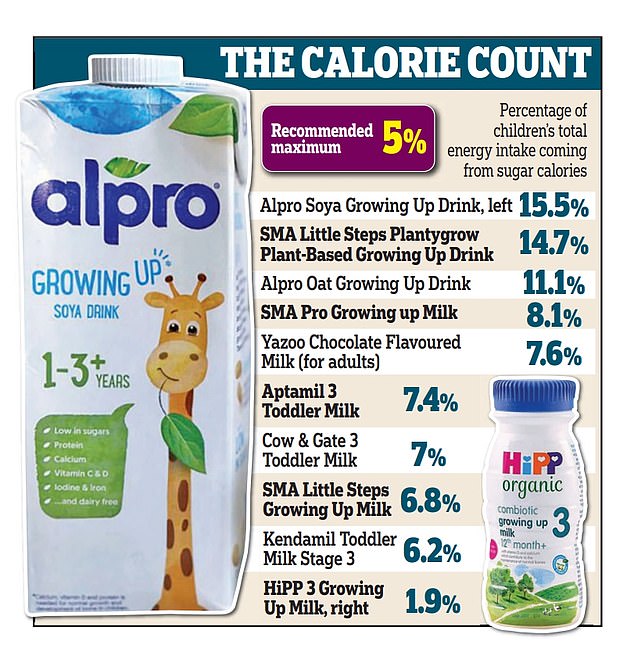One in three young children drink processed milk with a very high sugar content, putting them at risk of obesity and tooth decay, experts have warned.
Infant formulas for babies ages one to two, or “growing-up” milks, may contain more calories from sugar than an adult chocolate milkshake, researchers have found.
But many parents don’t realize that the drinks are so sweet or that there are no regulations on their ingredients.
Vicky Sibson, director of the charity First Steps Nutrition, which carried out the study, said: “Parents are trying to make healthy choices for their children and are led to believe that these drinks are a good option. It’s shocking that this isn’t the case.”
The NHS states that it is not necessary to give formula milk to children over 12 months (including infant and toddler milk) as they only need cow’s milk or water, although they can continue to drink breast milk.
However, government figures show that more than a third of babies aged 12 to 18 months are consuming processed infant formulas in the UK. These milks typically contain around a third more calories from sugar than recommended. Vegan versions are the worst offenders, containing up to three times the recommended levels, according to the report published this week.
Formulas for babies aged one to two years may contain more calories from sugar than an adult chocolate milkshake, researchers have found.

But many parents don’t realize that the drinks are so sweet or that there are no regulations governing their ingredients.
If children drink infant or adult milk every day, they will consume on average more than 1 pound (480 g) of extra sugars each month.
While the ingredients in infant formula are strictly regulated, there are no rules for infant milk or its marketing. Tests showed that drinks such as SMA Pro Growing Up Milk and Aptamil 3 Toddler Milk contained a similar amount of calories from sugar as the adult drink Yazoo Chocolate Flavoured Milk.
Researchers also found that 14 of the 16 processed infant milks in the UK exceeded official recommendations that added sugars should make up no more than 5 per cent of the total energy intake of children aged 12 to 18 months. The products included Cow & Gate 3 Toddler Milk and Kendamil Toddler Milk Stage 3.
Dr Sibson said: “Parents assume that all milk formulas must be safe. But when it comes to formulas labelled as for toddlers, growing children or stages 3 and 4, these products are not regulated.”
The report found that infant and toddler milks cost families, on average, £14.12 more a month than cow’s milk.
The British Specialist Nutrition Association, which represents the formula industry, said infant and toddler formulas “contain important nutrients for healthy development”.
She added: ‘Families should be able to choose from a range of options to complement their children’s balanced and varied diet.
“Our members are committed to producing nutritious products and marketing them responsibly.”
Nestlé said its SMA infant milk was “nutritionally adapted to toddlers aged one to three years to support growth and development”. Danone, maker of Aptamil, Cow & Gate and Alpro, said its plant-based drinks were “classified as low in sugar” and that its infant milks contained natural sugars. Kendamil did not comment.

